With their glamorous good looks, charming personalities, and affectionate devotion, it’s hard not to fall in love with a Havanese. Originally from Cuba, Havanese are beautiful and deeply loving canine companions — but these lively pups aren’t perfect for everyone. Let’s take a look at the most common complaints about Havanese dogs and what they need to live a happy and healthy life!
1. Grooming
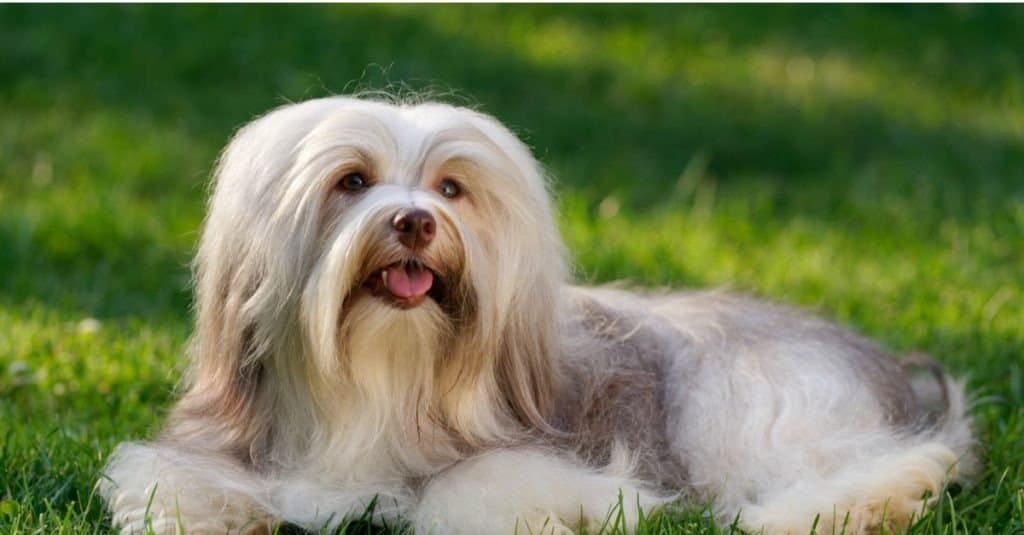
Havanese dogs have double coats with soft, light hair.
©Dorottya Mathe/Shutterstock.com
Havanese are stunning dogs with long and silky hair. However, their glamorous hairstyles result in some extra work. Some owners keep their dog’s coat long like a show dog, requiring several weekly brushings. Others groom their Havanese with a short and spunky hairstyle for less maintenance. However, even with shorter hair, Havanese still need to be brushed at least once or twice each week. In addition, they’ll need a haircut every few weeks to maintain this shorter style.
Although you might be tempted to shave your Havanese to avoid extensive grooming — don’t do it! A Havanese’s silky, soft coat protects them from the sun and keeps them warm in the winter. On the bright side, at least they don’t shed much!
2. Separation Anxiety
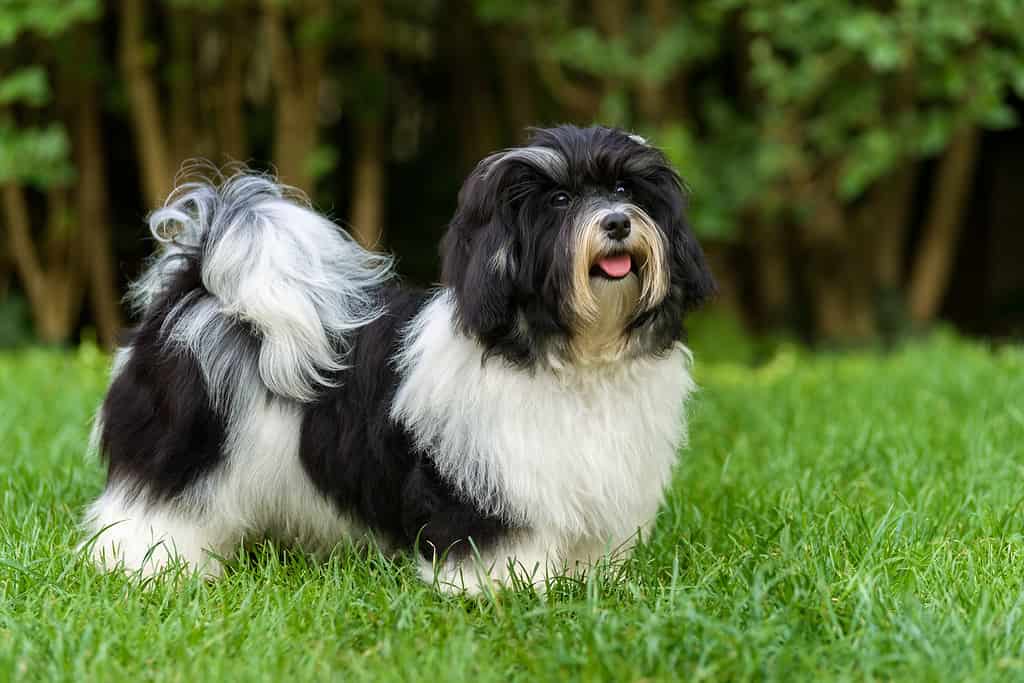
Some Havanese dogs have hair that is wavy or even slightly curly.
©Dorottya_Mathe/iStock via Getty Images
Many people love Havanese dogs because they are naturally happy, friendly, and affectionate companions. A Havanese’s favorite thing in the world is to spend time with their humans, and they need plenty of quality time with their families. They are sometimes called “Velcro dogs” and are prone to separation anxiety. One of the common complaints about Havanese dogs is that it is difficult to leave them alone for more than a few hours at a time. You should never leave your Havanese alone for long periods, as they tend to get bored and anxious. A Havanese who is stressed, anxious, and/or bored, tends to turn to destructive behavior to keep themselves occupied, like barking, digging, and chewing. If you are away from home for hours on end, a Havanese is probably not the dog for you.
3. Training
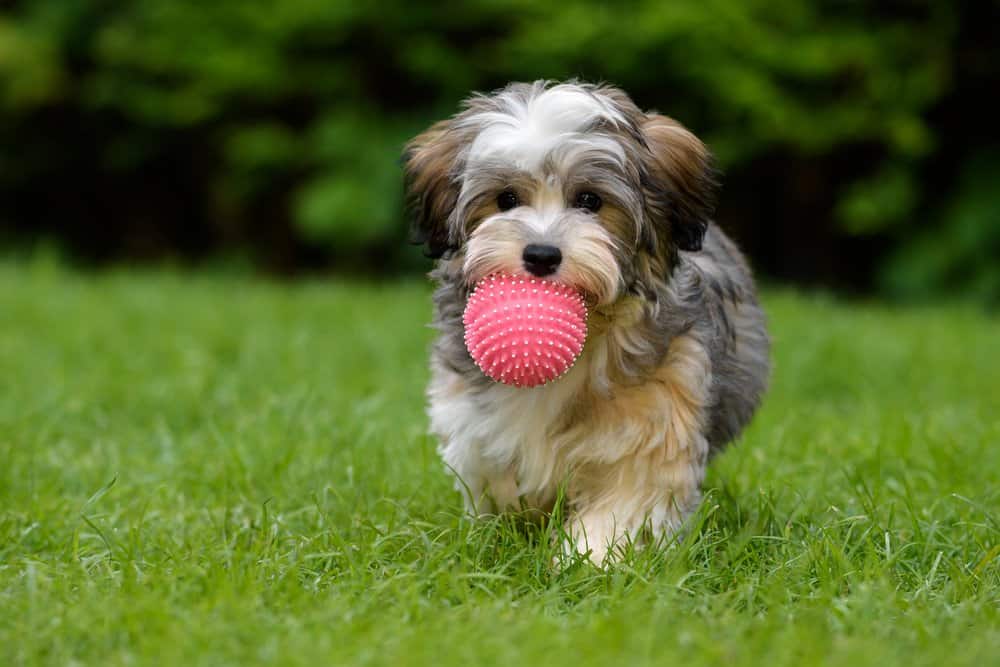
It is important to begin training your Havanese when they are young.
©Dorottya Mathe/Shutterstock.com
Loyal and intelligent, Havanese are typically easy to train. They are devoted and eager to please, and they love to learn new tricks and play with their humans! However, you should only ever use positive training methods and positive reinforcement. Havanese are extremely sensitive dogs and they do not respond well to harsh scolding. If your dog is having trouble with training, remember to stay calm, and be gentle and patient.
Socialization is also very important early for a Havanese. You’ll want to let them have lots of positive experiences with different places and people. This will help them to develop into the friendly and outgoing dogs we know and love.
4. Slow to Housebreak

Havanese are very sweet-natured dogs who love their humans with their whole hearts.
©Kanashi/iStock via Getty Images
Like many toy dog breeds, Havanese are very intelligent and typically train easily, but housebreaking can be a challenge. This is especially true when they are older, as they can be stubborn and like to stick to their original habits. However, Havanese typically pick up on potty pads or use a litter box quickly, which can also help with housebreaking training. Be sure to be consistent in your training, using positive methods and patience.
5. Indoor Dogs
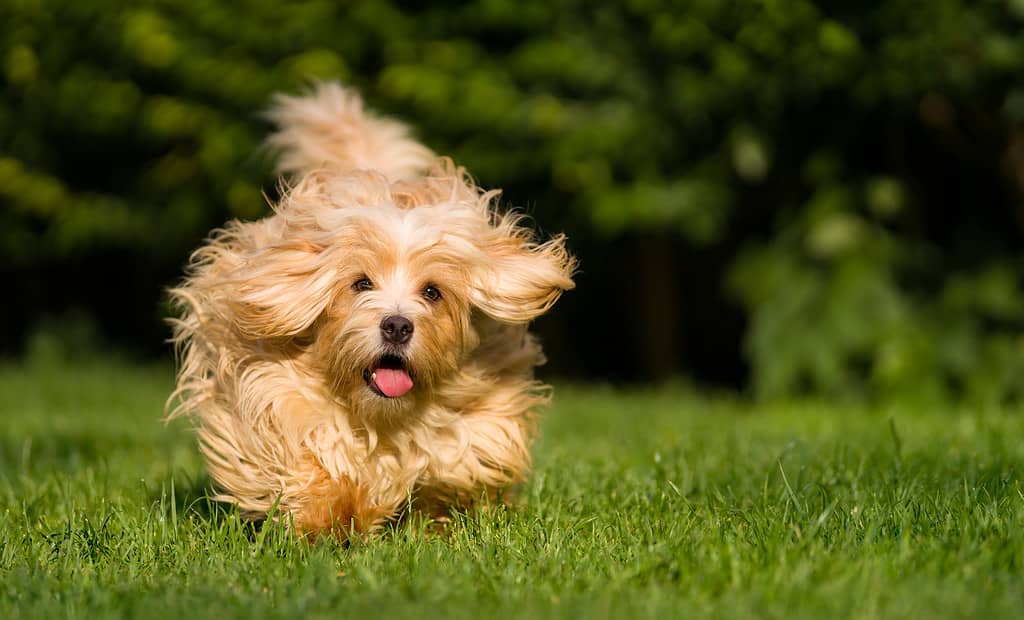
Havanese dogs are not built for strenuous activities or vigorous exercise.
©Dorottya_Mathe/iStock via Getty Images
Havanese dogs are a toy breed, measuring 8.5 to 11.5 inches tall at the shoulder and weighing 7 to 13 pounds. However, their bodies are rather sturdy, and they love to play — especially if it involves their favorite humans! These lively dogs enjoy going for walks and playing in the backyard, and some even enjoy the occasional swim. Although they enjoy spending time outside, they should always be supervised.
Havanese are indoor dogs and are not built for strenuous activities or spending a great deal of time outside. A common complaint about Havanese dogs often comes from active people looking for a running or hiking buddy, as these dogs are not well-suited for highly active people or families with strenuous lifestyles. If you cannot house your dog indoors, then the Havanese is not the dog for you. Fortunately, however, Havanese are incredibly adaptable dogs and do well in houses as well as in small apartments as long as they have adequate care and moderate exercise.
6. Health Concerns
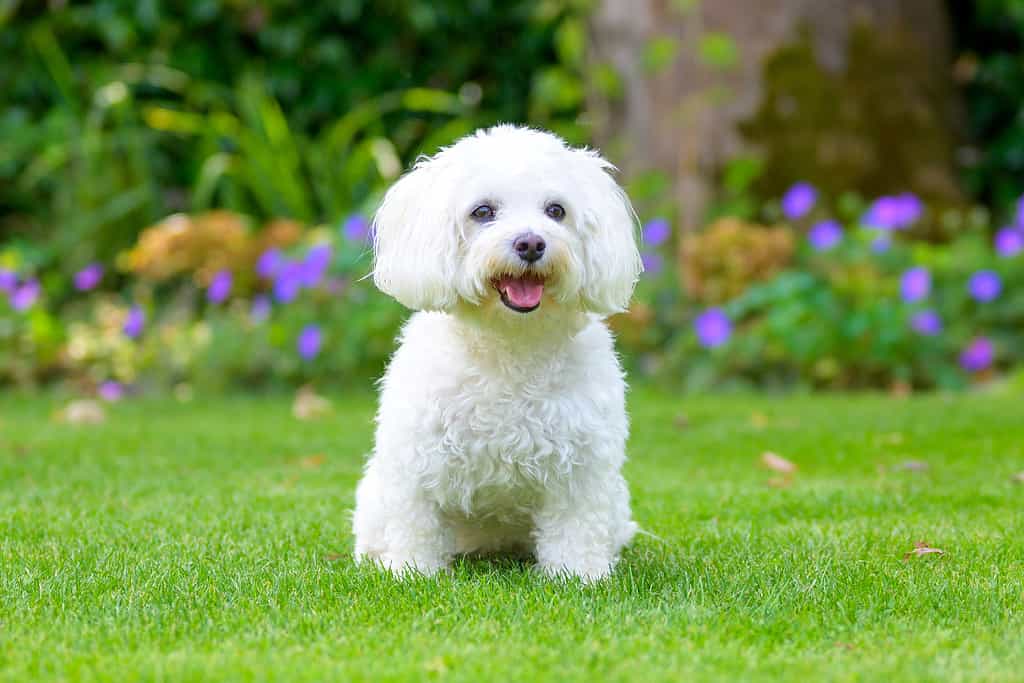
Havanese dogs love learning new tricks with their humans!
©mheim3011/iStock via Getty Images
Overall, Havanese are generally healthy dogs with a life expectancy of around 14 to 16 years. However, just like any dog breed, there are a few health concerns to watch out for. Havanese can be more prone to experiencing deafness, eye disorders, heart murmurs, chondrodysplasia (a disorder that causes shortened legs), legg-calve-Perthes disease (an issue with the hips), and patellar luxation (an issue with the patella).
Responsible Havanese breeders will alert you to any potential concerns and provide certification for specific health tests. Be sure that if you purchase a Havanese from a breeder, you do your research to ensure that the dog is healthy and well-cared for.
7. Potential Noise Levels

Havanese dogs are very sensitive and easily pick up on their human’s emotions.
©Dorottya Mathe/Shutterstock.com
When compared with other toy breeds, Havanese dogs are surprisingly quiet. They are not “yappy” dogs like many other small dogs, but they do like to use their voice to express themselves. If you leave a Havanese alone for too long, for example, they may resort to consistent barking. They also bark to alert you of visitors at the door or when they are excited and want to play. However, they are not excessive barkers, and with early socialization and positive training, you can help your Havanese learn when it is and is not appropriate to bark.
8. Expensive
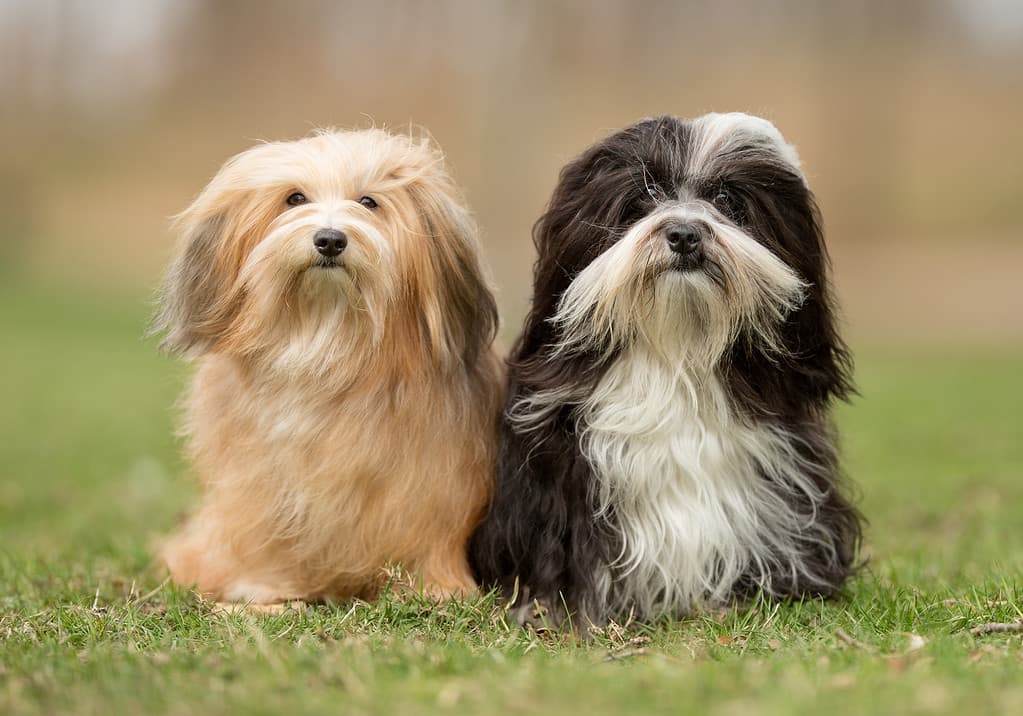
Havanese dogs come in many different colors.
©Bigandt_Photography/iStock via Getty Images
If you’re looking to buy a purebred Havanese puppy from a breeder, they typically cost between $1,000 and $3,000 dollars. In addition, you may need to travel to find a responsible Havanese breeder whom you can trust, which adds to the overall cost.
However, you can also adopt a Havanese from shelters and rescues — even purebred ones! Check with your local animal shelters and rescue groups to see if they have any available. There are also breed-specific rescues that exclusively work with Havanese dogs.
The photo featured at the top of this post is © iStock.com/Dorottya_Mathe
Ready to discover the top 10 cutest dog breeds in the entire world?
How about the fastest dogs, the largest dogs and those that are -- quite frankly -- just the kindest dogs on the planet? Each day, AZ Animals sends out lists just like this to our thousands of email subscribers. And the best part? It's FREE. Join today by entering your email below.
Thank you for reading! Have some feedback for us? Contact the AZ Animals editorial team.






